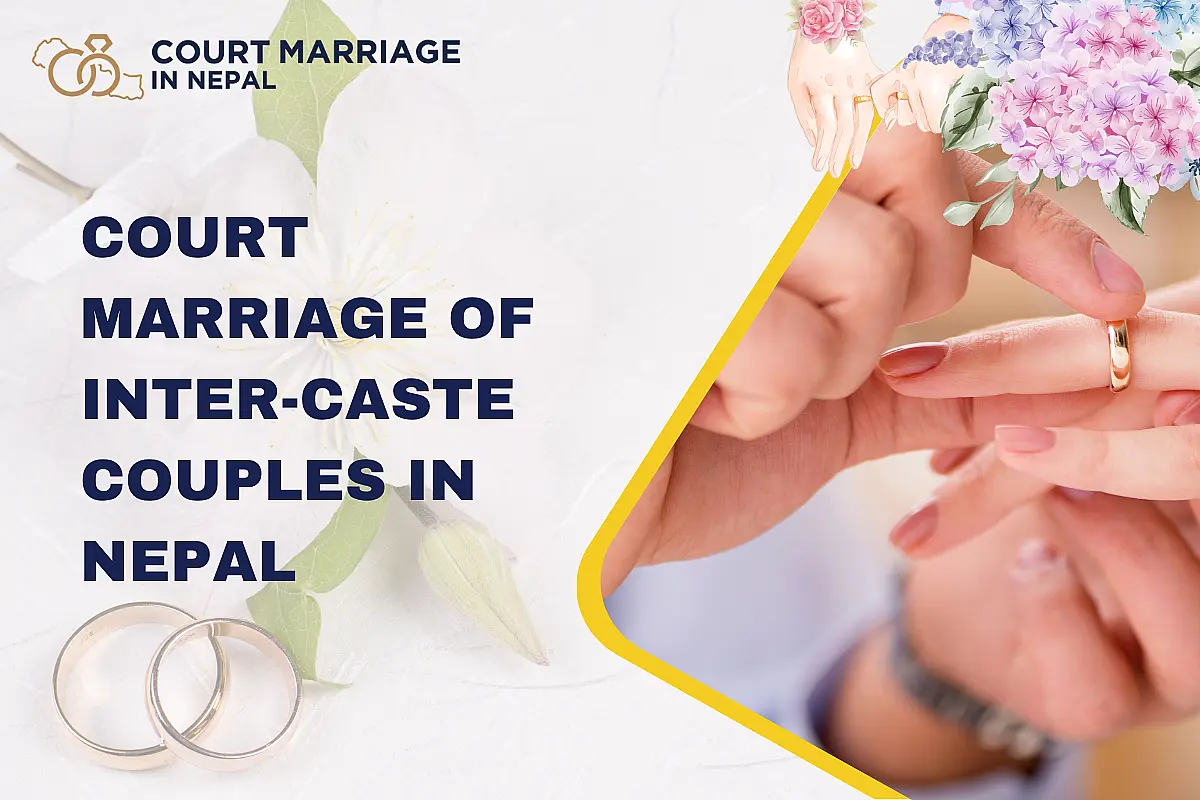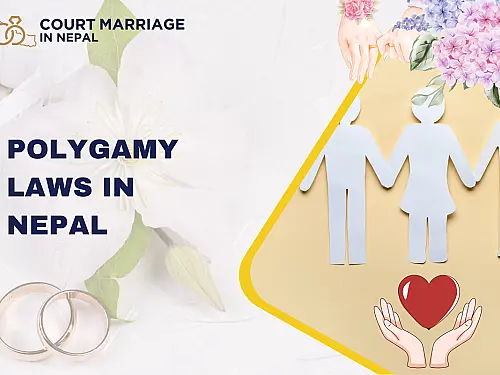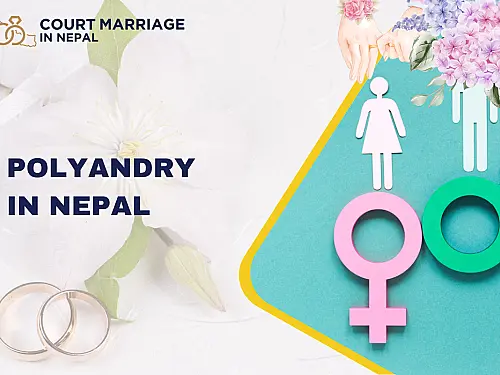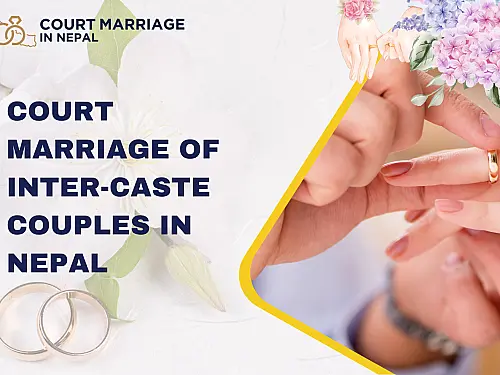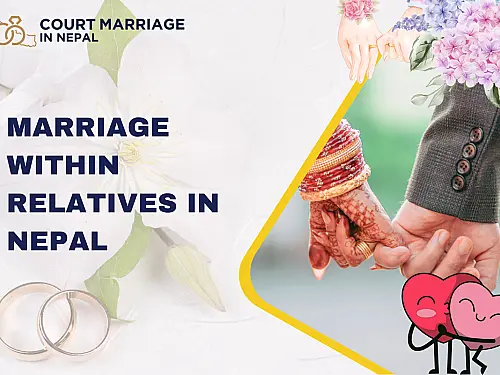Table of Contents
Inter-caste marriage (Nepali: अन्तर्जातीय विवाह ) represents a union between individuals from different castes, a practice that challenges long-held societal norms in Nepal. Given the country’s deep-rooted caste system, inter-caste marriages have traditionally been stigmatized, often met with resistance from families and communities. Despite these challenges, such unions have gradually gained recognition and acceptance over time, thanks to evolving legal frameworks and shifting societal attitudes. In this article, we delve into the legal provisions, social barriers, and emerging trends surrounding inter-caste marriages in Nepal.
Legal Provisions for Inter-Caste Marriages
Nepal's journey toward embracing inter-caste marriages has been marked by significant legal milestones. The country's legal framework has progressively evolved to promote equality and protect inter-caste couples from discrimination. Below are key legal developments:
Muluki Ain and Early Restrictions
The "Muluki Ain," Nepal’s first comprehensive civil code, was enacted in 1854 under Jung Bahadur Rana's leadership. This legal document explicitly outlawed marriages between individuals of higher and lower castes, reinforcing caste-based discrimination as a state-sanctioned practice. These restrictions institutionalized social hierarchies and excluded lower-caste groups from accessing basic rights, including the right to marry freely.
The Shift in 1963: Abolishing Caste-Based Inequality
A pivotal moment came in 1963 when King Mahendra reformed the "Muluki Ain," abolishing the legal barriers to inter-caste marriages. This amendment aimed to promote caste-based equality, allowing individuals from different castes to marry without legal repercussions. While the reform was a significant step, societal norms continued to perpetuate discrimination.
The Constitution of Nepal (2015)
The Constitution of Nepal, promulgated in 2015, established fundamental rights that prohibit caste-based discrimination. Article 18 guarantees equality before the law, while Article 38 ensures every individual’s right to marry according to personal choice, irrespective of caste or ethnicity. This constitutional recognition further solidified the legal framework protecting inter-caste marriages.
The Civil Code (2017)
The Civil Code of 2017 reinforced legal protections for inter-caste couples, explicitly outlawing discrimination and violence against them. It includes strict penalties for those who obstruct or prevent inter-caste marriages. Offenders can face fines of up to NPR 30,000 or imprisonment of up to three years, or both. These provisions highlight Nepal’s commitment to safeguarding the rights of inter-caste couples.
Social Acceptance: Challenges and Realities
While Nepal’s legal framework has made notable strides, the social acceptance of inter-caste marriages remains fraught with challenges. Deeply ingrained caste-based prejudices continue to influence family dynamics, community interactions, and societal attitudes.
Stigma and Social Barriers
Inter-caste marriages often encounter disapproval from families and communities. Many fear becoming social outcasts or losing social status, which deters families from supporting such unions. According to research conducted by the Jagaran Media Center, inter-caste couples frequently face harassment, forced separation, and displacement. In extreme cases, couples endure violence or are ostracized by their communities.
For instance, brides from lower-caste groups often experience discrimination and rejection from their in-laws, leading to emotional distress. These challenges highlight the disparity between legal protections and societal realities.
Incidents of Violence
Tragic incidents of violence against inter-caste couples underscore the persistent resistance to such marriages in Nepal. Notable examples include the following:
- Saptari District (2004): A Dalit man and an upper-caste woman who eloped were kidnapped by the bride's family. The incident escalated into a violent attack on the Dalit community by over 200 upper-caste individuals.
- Rukum District (2020): Two Dalit men were killed by villagers when they attempted to marry upper-caste women. This incident drew national and international attention, sparking debates about caste-based violence in Nepal.
Such events reveal the extent to which caste-based prejudices can lead to devastating consequences, even in the face of legal protections.
Psychosocial Impacts
The lack of social acceptance also takes a toll on the mental well-being of inter-caste couples. Brides who are rejected by their families often face depression, anxiety, and other psychosocial challenges. This underscores the need for greater societal support and counseling services to address the emotional impact of such discrimination.
Positive Signs of Change
Despite the persistent challenges, there are encouraging signs of progress toward greater acceptance of inter-caste marriages in Nepal.
Support from Families and Communities
Some inter-caste couples have reported receiving support from their families and communities, reflecting a gradual shift in societal attitudes. Educational opportunities and urbanization have contributed to more open-minded perspectives, especially among younger generations.
Advocacy and Awareness Campaigns
Non-governmental organizations (NGOs) and media outlets have played a crucial role in raising awareness about the rights of inter-caste couples. Advocacy campaigns emphasize the importance of equality and challenge deeply ingrained caste-based biases. These efforts have helped foster dialogue and promote acceptance within society.
Role Models and Public Figures
Public figures, including celebrities and politicians, have set examples by marrying outside their castes. Their actions serve as powerful statements against caste-based discrimination, encouraging others to challenge societal norms.
Balancing Legal Protections and Social Change
While Nepal’s legal framework provides robust protections for inter-caste marriages, achieving genuine social acceptance requires a multifaceted approach:
Education and Awareness: Increasing awareness about the legal rights of inter-caste couples can help dispel misconceptions and reduce prejudice. Educational institutions and community programs should prioritize discussions on equality and social inclusion.
Support Networks: Establishing support networks for inter-caste couples can provide emotional and practical assistance, reducing the impact of social stigma.
Stricter Enforcement: Ensuring the effective implementation of laws that protect inter-caste couples is crucial. Authorities must take swift action against those who engage in discrimination or violence.
Role of Media and Advocacy Groups: Media outlets and advocacy groups must continue to highlight positive stories of inter-caste marriages, challenging stereotypes and inspiring change.
Conclusion
Inter-caste marriage in Nepal is both a legal and social issue, reflecting the tension between progressive legislation and traditional norms. While Nepal’s legal provisions ensure the protection and promotion of inter-caste marriages, societal acceptance remains a work in progress. Challenges such as social stigma, violence, and emotional distress persist, but signs of change indicate a gradual shift in attitudes.
By fostering education, advocacy, and dialogue, Nepal can bridge the gap between legal recognition and social acceptance, creating a society where love and equality transcend caste boundaries. At its core, the journey toward inter-caste marriage acceptance is a testament to the resilience and courage of those who challenge the status quo for a better future.
At Court Marriage In Nepal, a registered law firm operating as Court Marriage In Nepal Pvt. Ltd., we specialize exclusively in Court Marriage Nepal. As the first law firm in Nepal dedicated to court marriage services, we assist both Nepali citizens and foreign nationals with the court marriage registration process in Nepal, including complete legal support for court marriage registration for foreign citizens in Nepal. As a trusted marriage firm in Nepal and a licensed law firm in Nepal, we ensure a smooth, lawful, and stress-free experience. Contact us today for confidential assistance with court marriage registration in Nepal.

